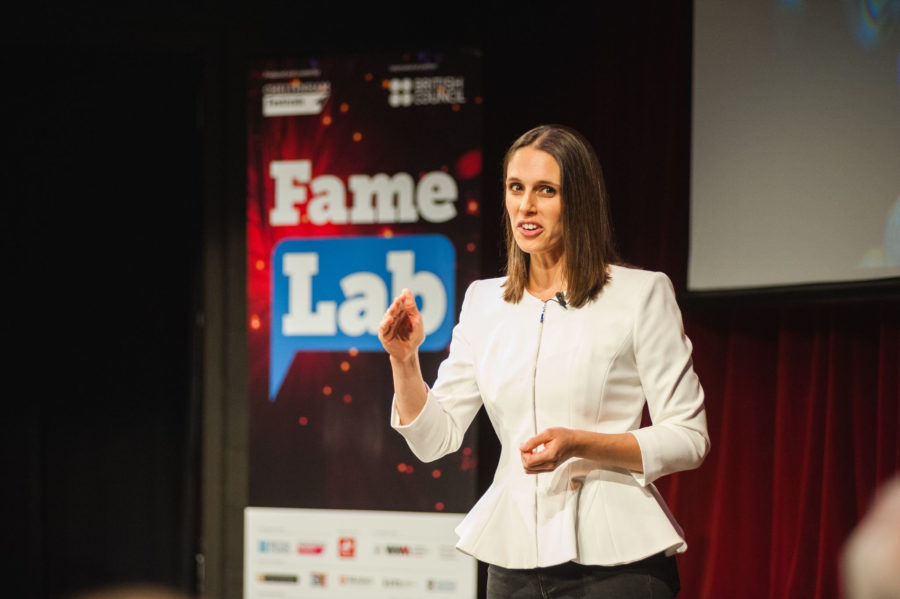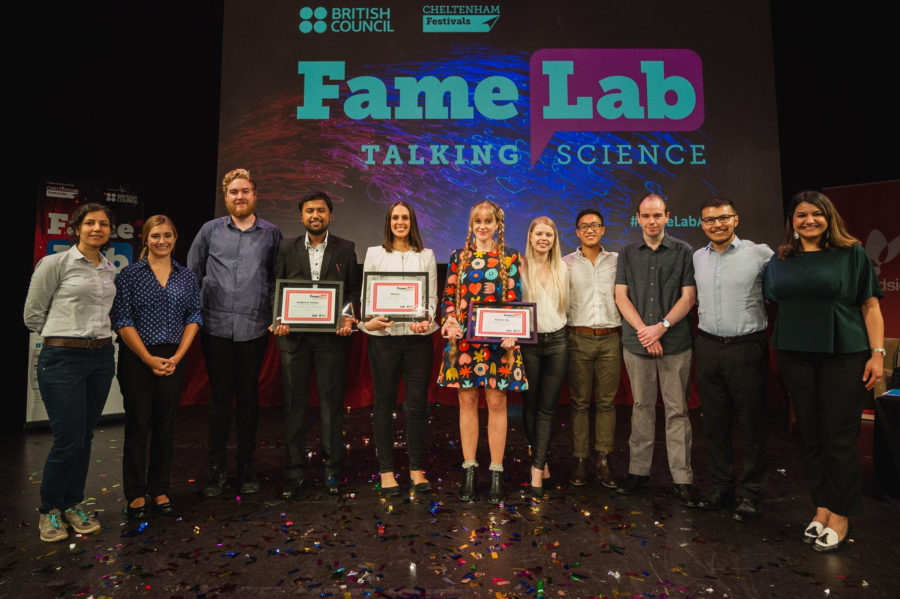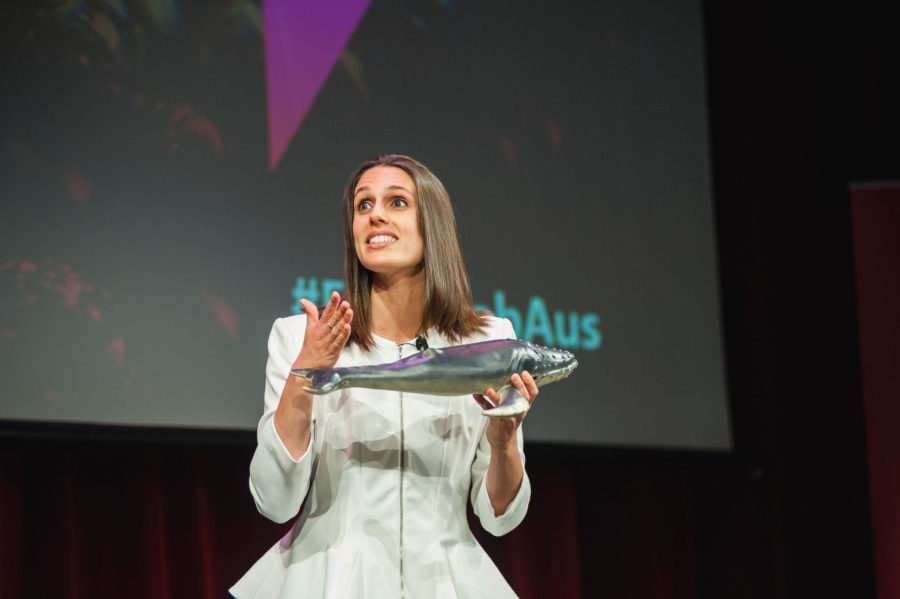21st May 2018 Canberra, Australia
A whale of a story: Talking science with FameLab winner Vanessa Pirotta

It’s not often you get the chance to hear masterclasses on dark matter, heart disease, solar windows and kangaroo breath all in the same evening. This year’s Australian FameLab final had it all – but it was the whale snot that stole the show.
FameLab is the world’s leading science communication competition by the British Council in partnership with local businesses, universities and cultural organisations. Entrants have just three minutes to win over the judges and crowd with a scientific talk that excels for its content, clarity and charisma.
Since its foundation in Cheltenham in 2005, FameLab has seen over 9000 young scientists and engineers participate in more than 30 different countries. This year, FameLab Australia saw a record number of applicants as early-career researchers grabbed the opportunity to share their passion for science with the wider community.

Vanessa Pirotta – Using drones to collect whale snot (FameLab Australia 2018 Winner)
After four heated semi-finals and a closely fought national final held at the University of Western Australia, this year’s Australian winner was Vanessa Pirotta from Macquarie University. Vanessa’s research involves using drones to connect snot samples from whales for conservation purposes; this was previously done by using dangerous close boat approaches or taking samples from stranded whales.
Vanessa will now go on to represent Australia at the international FameLab final in Cheltenham this June. She joins a growing and distinguished cohort of FameLab alumni who are helping strengthening scientific links between the UK and Australia.
We had a quick chat with Vanessa about the competition, marine conservation and career next steps.
What inspired you to enter FameLab?
FameLab looked like the perfect platform for me to share my research, learn great communication skills and meet new people. The experience exceeded my expectations and I’m very grateful to have been part of it.
How did you get into marine conservation?
I was always interested in marine life, particularly whales and dolphins. I did everything I could to be closer to the ocean. This was extra tricky as I grew up in Canberra. I studied marine biology and zoology, worked within the marine industry, rehabilitated marine turtles and finally started my masters in Sydney. This work focused on trying to prevent whale entanglements in fishing gear.
When I started my PhD, I knew it had to be focused on something that I was passionate about and willing to focus on for the next three years. Fortunately, my supervisors also shared similar interests, which allowed me to pursue a conservation-based project.
What kind of reactions do you get when people find out you work with whale snot?
It’s often very positive. I usually get a big smile and then a slight pause for them to process what I have just told them. I will then spend some time answering questions, which is a great part of science communication for me.

What’s next for you?
I’m looking forward to the FameLab international finals and completing my PhD in July. After that, I welcome any opportunity whether it be academic or science communication based.
What advice would you give to prospective FameLab applicants?
FameLab is a great opportunity to have fun with your research and meet new people.
My advice to future FameLabbers: find something interesting or quirky about your project and write a story about it in three minutes. FameLab will add to your research experience and teach you how to become a better science communicator.
The British High Commission is the UK Government Partner for FameLab in Australia. For more information about FameLab and other British Council events, please click here.